
CAE SPEAKING
GENERAL INFORMATION
Task strategy (all parts)
• Listen to the examiner's instructions carefully so you know what you have to do.
• Don't be afraid to ask him/her to repeat the question if necessary.
• Use a wide range of structures and vocabulary. This is your chance to show your command of spoken English.
• Avoid repeating yourself.
• Speak clearly so the examiners can hear.
• Give yourself thinking time by using expressions such as Let me think or I haven't given this much thought before, but I suppose ...
• Paraphrase if you can't think of a word.
• In Parts 1, 3 and 4, participate fully but don't dominate - encourage your partner to speak as well.
Part 1: social interaction (three-way conversation) (3 minutes)
This part is a three-way conversation between the candidates and interlocutor in which you have to answer the examiner's questions about yourself, find out personal information about your partner based on prompts given by the interlocutor, and answer your partner's questions. The focus is on social interaction.
Task strategy
When asking questions:
• Keep your tone friendly and sound interested!
• Encourage your partner to expand his/her answers.
• When asking questions from prompts, avoid repeating the same words.
When answering questions:
• React naturally - don't use prepared answers.
• Answer as fully as you can - don't be monosyllabic.
• Keep talking - don't pause too long.
Part 2: individual long turn (4 minutes)
In this task, you have to talk for about one minute without interruption, commenting on or reacting to a visual prompt, usually a set of pictures around a particular theme. Tasks involve the language of comparing and contrasting, describing, speculating or hypothesising. You and your partner may each have a completely different task. In this case, you are each asked to comment briefly after your partner has spoken (about 20 seconds). Alternatively, you may have a 'shared task', i.e. the same task as your partner (with a different set of pictures). At the end of the shared task, you and your partner look at both sets of pictures and answer a question together (up to a minute).
Task strategy
• Make sure you don't simply describe the pictures - your response should include hypothesis or speculation from the start.
• Keep talking, but try to finish within the time limit.
• Organise your ideas and express yourself coherently.
• When your partner is speaking, listen but don't interrupt.
Part 3: collaborative task (two-way interaction) (4 minutes)
In this section, you and a partner are given visual prompts, usually a set of pictures on a theme, and asked to collaborate on making a decision or solving a problem. There is no one correct answer, but you are expected to discuss the prompts (the first part of the task) and work towards a conclusion (the second part of the task). You don't have to agree. At the end, you are asked to report on and justify the outcome of your discussion. This task requires a range of linguistic skills to keep the conversation going, such as paraphrasing, asking for clarification and using conversational 'fillers' rather than leaving long pauses. It also tests a range of communication strategies: an ability to invite the opinions of your partner, discuss, evaluate, collaborate, negotiate and reach some kind of agreement.
Task strategy
• Make sure you discuss the first part of the task before you come to a conclusion.
• Give your opinions, but take care not to dominate.
• Invite your partner to give his/her opinion and develop what he/she says.
Part 4: developing the discussion (three-way conversation) (4 minutes)
In this part, the examiner leads a discussion which develops the issues raised in Part 3 in a broader and more abstract way. You may be asked to respond to the same or different questions.
Task strategy
• Participate in developing the discussion. Don't just give one-word answers.
• Respond to and develop the points made by your partner.
• Don't interrupt your partner or dominate the discussion.
UNIT 1
Part 1
Where are you from?
What do you do?
How long have you been studying English?
What do you enjoy most about learning English?
What are your interests and leisure activities?
What type of music do you like?
Do you enjoy listening to the radio? Why?/Why not?
Would you be happy to live without music? Why?/Why not?
____________________________________________________________________________________________
Part 2/3
Look at the photographs, which show four different ways of appreciating music.
First, describe what the people in the photos are doing and how they are feeling.
Then decide the relative merits of each and pick the one you think is most representative of how young people enjoy music today. You have about three minutes to talk about this.
Talk about:
the atmosphere – hushed / electric / expectant / conducive / free and easy / rarefied
sound quality – decibels / interference / poor / excellent
value for money – a rip off / extortionate / a bargain

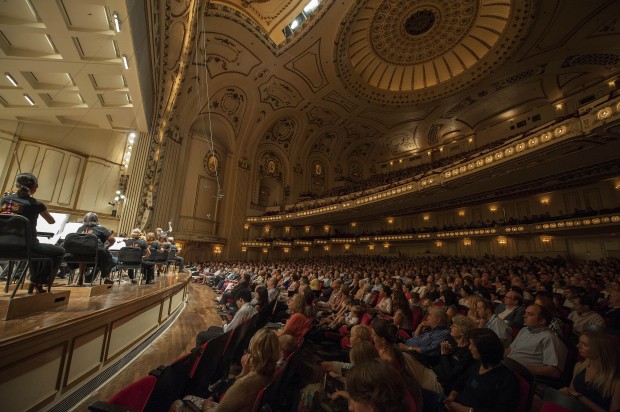


Use the following words and phrases when completing the task.
as a result
basically
be true
by means of sth
by no means
eventually
given that
in a sense
in effect
in other words
in short
not necessarily
not to mention
surely
to one’s mind
to the point that/where, etc
Part 4
What is your opinion of the following statements?
Listening to music helps me to concentrate, especially when studying or working.
Pop music improves my mood.
Listening to classical music can improve your intelligence.
Rock music fills me with energy.
Which would you rather listen to: live music or recorded music? Why?
Do you like hearing background music in shops and restaurants? Why?/Why not?
Use 15 words/phrases from the Listening Vocabulary List when answering these questions.
___________________________________________________________________
Part 3
You are to compare the people described in the text ‘Making music – their way’.

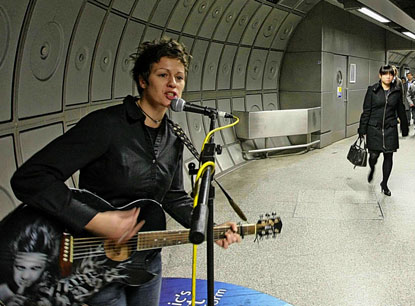

First, discuss what you think is the most productive way to follow a career in music.
Then decide which person from the text you find most admirable. Explain your choice.
Part 4
Do you have buskers in your city? How do people feel about them?
Do you find street busking acceptable? Why?/ Why not?
Would you like to busk? Why?/Why not? What kind of busking would you do?
Can you play a musical instrument? If not, which one would you like to play? Why?
Use 15 words/phrases from the Use of English Vocabulary List when answering these questions.
Discuss with other students what kind of music
helps you concentrate
annoys you
Is good to listen to when you're happy or sad
cheers you up
evokes particular memories
helps you relax
bores you
you find too highbrow
you find too trashy
you find inspiring
________________________________________________________________________________________
What musical instruments
do you play
would you like to learn to play
have the most beautiful sound?
Should music just be something we listen to or should we also make music? Why?
Should all children be taught music or playing a musical instrument at school?
Should musicians be paid more than people doing other types of work? Why?/Why not?
________________________________________________________________________________________
Would you ever go to see a concert by a tribute band - where a group of musicians impersonates a famous group? Why?/Why not?
Why do you think tribute bands are popular?
Who do you think goes to see them?
How do you think they are regarded a) in the music business b) by the original band members?
Use 15 words/phrases from the Reading Vocabulary List when answering these questions.
________________________________________________________________________________________
What do you think is the best way to find out about new bands, singers or music? Why?
• listening to the radio
• reading the music press
• word of mouth
• going to live concerts
• surfing the Internet
Make a list of the advantages and disadvantages of downloading music from the Internet for
a) fans
b) musicians.
Does the writer of the text ‘The power of file sharing’ think the Internet is a good thing for music generally?
How do you think the music business has changed since this article was written?
How do you like to get music yourself? Why?
Use 15 words/phrases from the Use of English Vocabulary List when answering these questions.
Unit 7
Part 3
TIPS!
you should collaborate with the other candidate.
discuss each picture in turn before negotiating a decision.
move the discussion on, don’t linger on one picture.
Useful vocabulary:
Why don’t we talk about them all in turn?
Let’s move on …
That’s as much as we can say about that.
What about the next …?
This one is interesting. What do you think about …?
Have you any other ideas about this?
Let’s go back to …
Task
I’d like you to imagine that there is a plan to open an arts centre in a small town. The idea is that this will attract visitors to the area. Here are some of the things the organizers are considering as possible exhibits. Talk together about whether these are appropriate things to exhibit in an arts centre. Then decide which four might attract visitors.

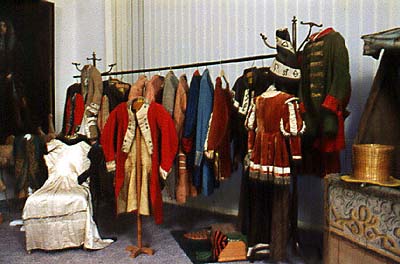



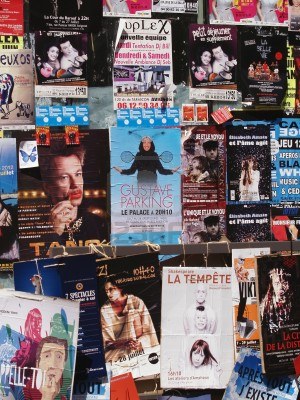
Part 4
Discuss:
Should towns invest money in arts centres, or in new businesses? Why?/Why not?
What kind of art do you like? Why?
Some people say that all art is a waste of time. What do you think?
Do you think art should still be taught in schools? Why?/Why not?
Should artists be paid more or less money than singers or actors? Why?/Why not?
Part 2: Individual Long Turn
In the exam you have to talk on your own for about a minute. What do you think you should spend most time on in this task?
a) describing what you can see in the picture
b) speculating on what the people might be enjoying
c) speculating on how long the pictures might be on show
TIP!
You should try to use a range of language and functions, so only describe what you can see very briefly otherwise you will not have time to speculate. Try to organise your talk clearly, using the task to help you. The task is summarised on the exam paper to help you.
Task
Here are some photographs of people looking at pictures. Compare two of the photographs and say what the people might be enjoying about the pictures, and how long the pictures might be on show.

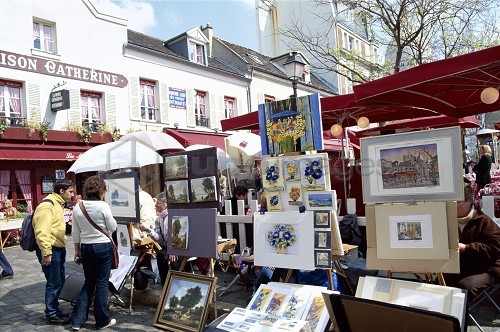
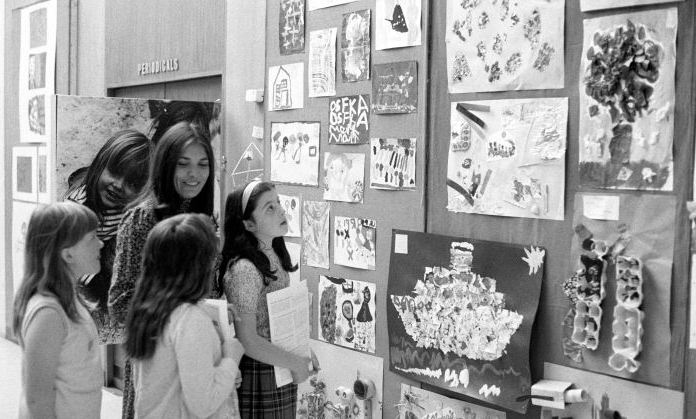
Part 4
Discussion
1. What do you think of the alliance between art and technology?
What are the convincing arguments for viewing computer games as a work of art (based on the reading)?
Do you think a computer game could be considered as a work of art? Why/Why not?
What aspects of computer games would you view as a) artistic, b) technical?
How have our ideas about what is art been changed by technology?
2. Outdoor art exhibitions charitable auction sales: pros and cons.
Compile a list comprising works of art that are suitable for an auction sale benefiting charities. What makes them suitable? Should they be of much artistic value? Why/Why not?
Should works of art be displayed in the open air across cities? Why/Why not?
3. Traditional and temporary forms of art: their value.
Make a list of traditional forms of art in other cultures. Describe a few examples that have impressed you most.
Do you think they lose anything when they are borrowed into a different culture?
Make a list of temporary forms of art. Describe the most amazing and beautiful examples.
Do you think that anything temporary has any real value?
Would you like to have henna art on your body? Why/Why not?
4. Collections: a hobby or a madness?
Why do people collect things?
What kind of things do you collect, have you ever collected or would you like to collect in the future?
What makes a collection of anything valuable?
5. My room. My mess. My business.
Do you have a roomful of clutter, or are you tidy?
What do you think of the advice the writer gives at the end of the text ‘Reject, recycle or retain?’?
Do you think that collecting souvenirs could be a good way of making money?
6. Is all art art?
Rate the value of art in the following cases:
animal art
children art
art involving unconventional techniques or materials
7. What are the pros and cons of pop bands becoming a product? Use 10 words from the following list of in your answer.
8. Can lip-synching be justified?
Is there any musician to whom it would be acceptable to lip-synch?
What disappointed the author of the article most about the inauguration performance?
What arguments for the lip-synched performance do you find reasonable?
9. Give your arguments for and against illegally downloading music from the Internet.
10. In what cases comebacks in music business are justified?
11. As part of the annual local festival which takes place in your area, your school/college theatre is going to be able to put on one of the following shows:
• A tragedy by William Shakespeare
• A classical music concert
• A jazz concert
• A modern art exhibition
• A stand-up comedy show
• A rock concert
In groups, decide which show would be most appropriate. Consider the following:
• Which show would attract the most sizeable audience in your area?
• Which show would promote your school's image as a place where art is appreciated?
12. Match the keywords to the paintings, add at least two keywords to describe each painting.
• heavy shades • calming effect • dull colours • gentle brush strokes • oppressive surroundings
• use of warm colours • sense of security • glum lighting
innocence • sensitivity • warmth • trust • friendship
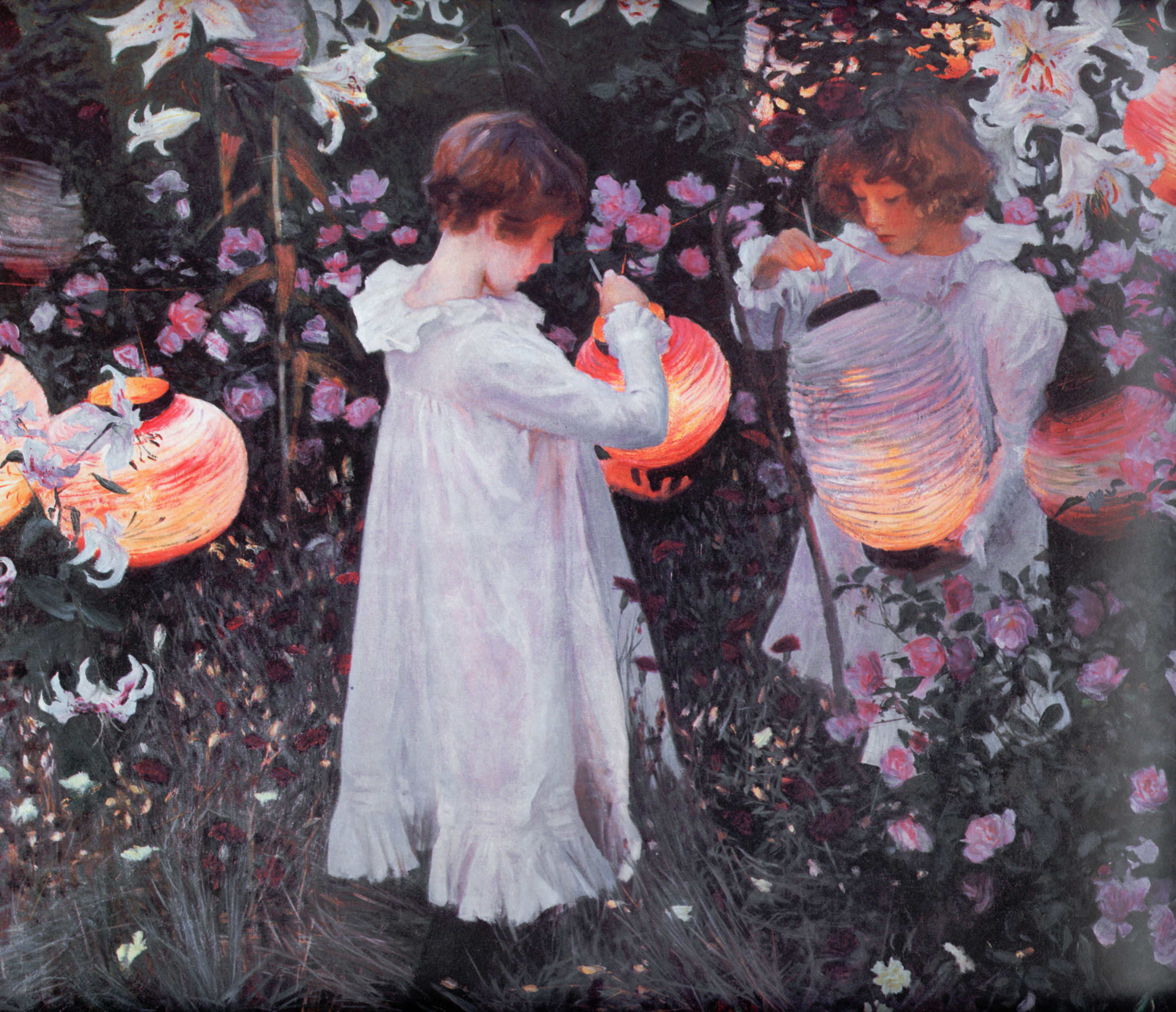
distance • mistrust • fear • repression • insincerity

Talk about each painting.
• How does each painting make you feel?
• Which one would you like to have in your possession? Why?
